Testament: The Order of High Human Review
Testament: The Order of High Human, developed and published by Fairyship Games, is a first-person platform puzzle adventure RPG that runs well on Linux and will make your Steam Deck cry.
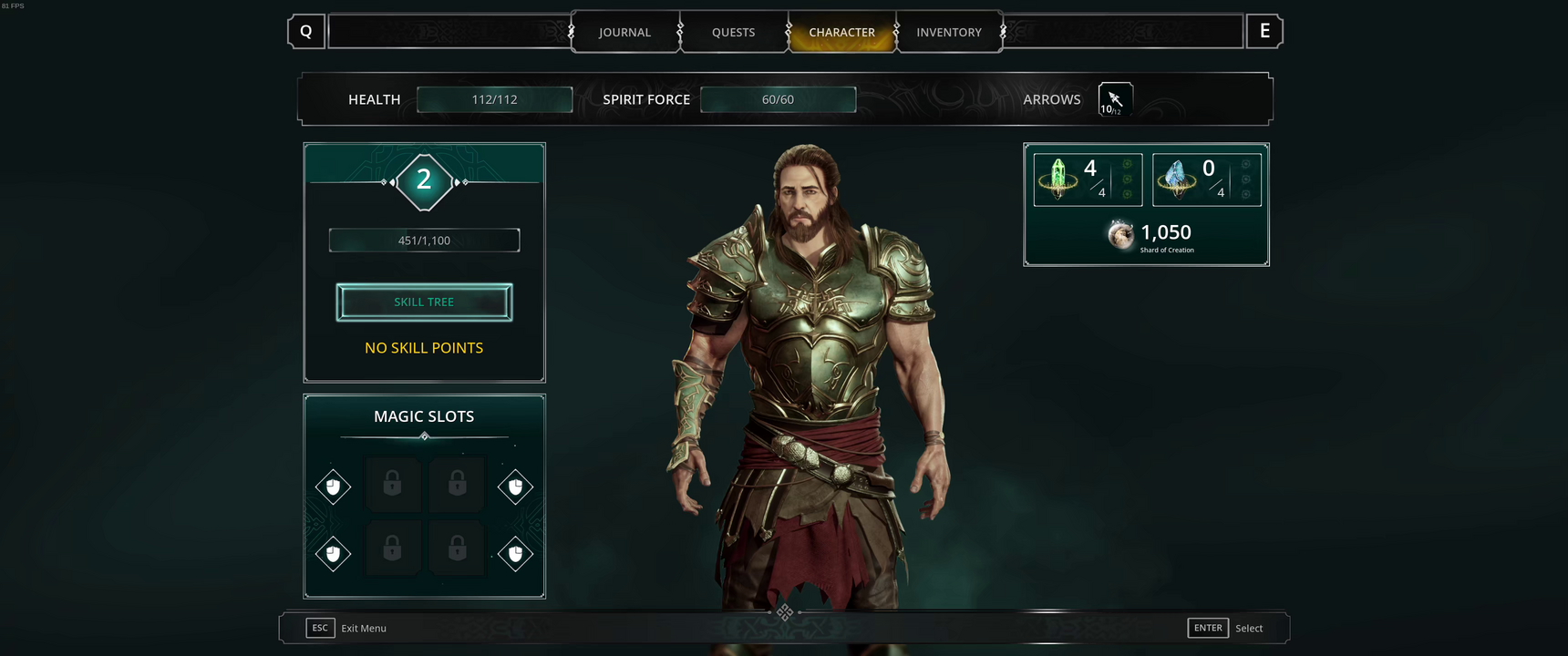
In this fantasy world, you play as Aran, a fallen immortal-king-light-etc there were a lot of adjectives but he is some sort of guardian of the realm striped from his powers. He also seems to be fixated on nipples, every time you talk to someone the camera fixes on that chest level to the point of cropping people’s eyes from the frame.
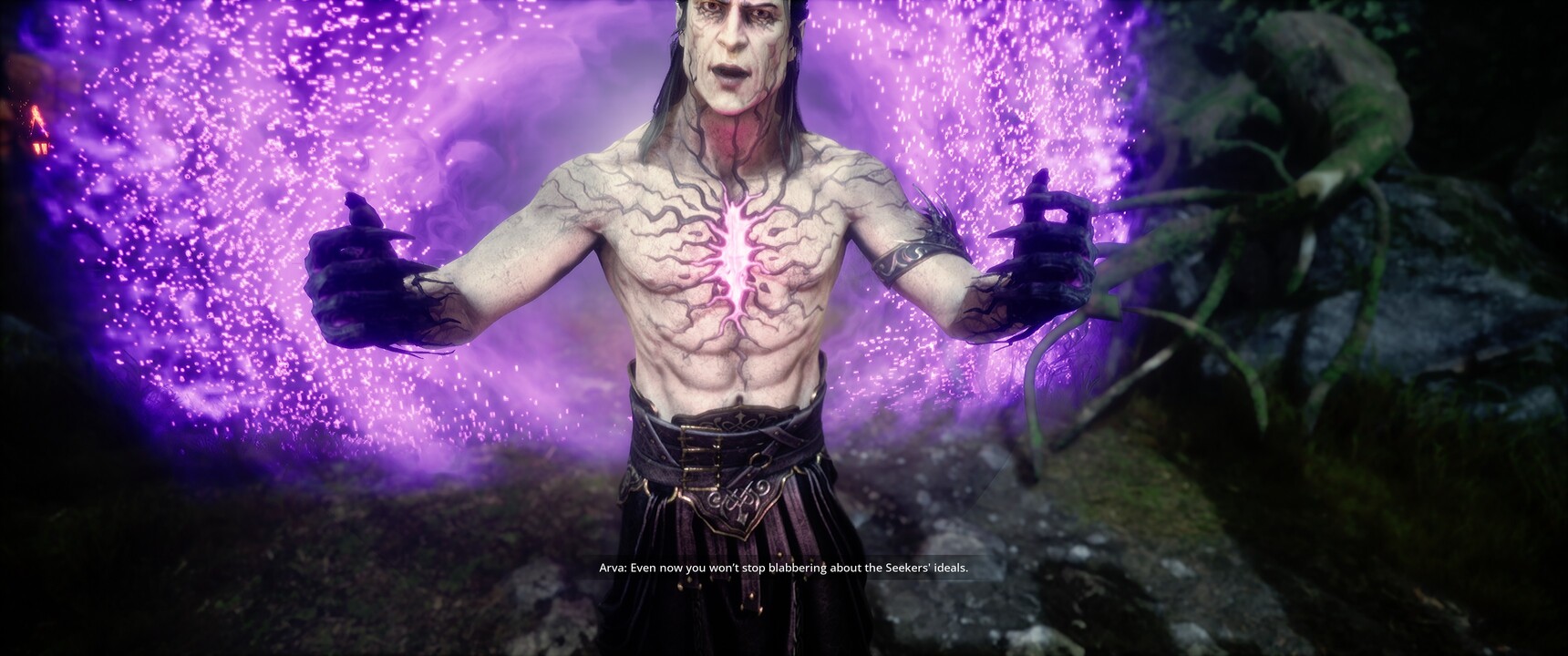
You are on a journey to stop your brother, aligned with darkness, he is trying to destroy everything you hold dear. But first you will have to relearn everything again: how to use a sword, a bow, magic, how to walk forward and survive 30+ minutes of tutorial pop-ups.
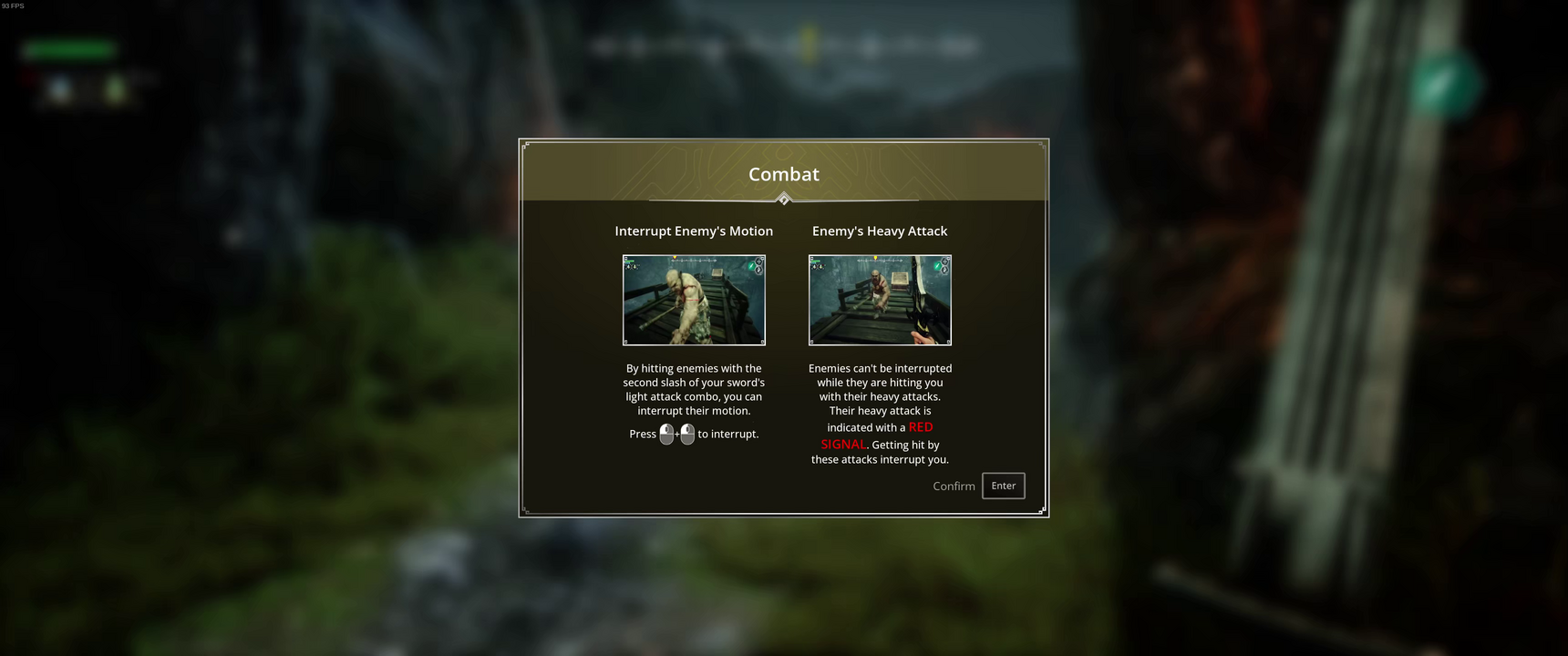
That was when the game almost lost me for the first time, you cannot do anything until the tutorial allows you to do so, the game prevented me from falling into my death until I got to the jumping part of the guide. This constant “guidance” and pop-ups info broke the immersion often until later, that was when the game started growing on me.
Don’t get me wrong, a lot of new guides are going to pop-up, but you will have more space between then, with enough time to master your newly acquired skills and properly enjoy those in-between sections of the game.
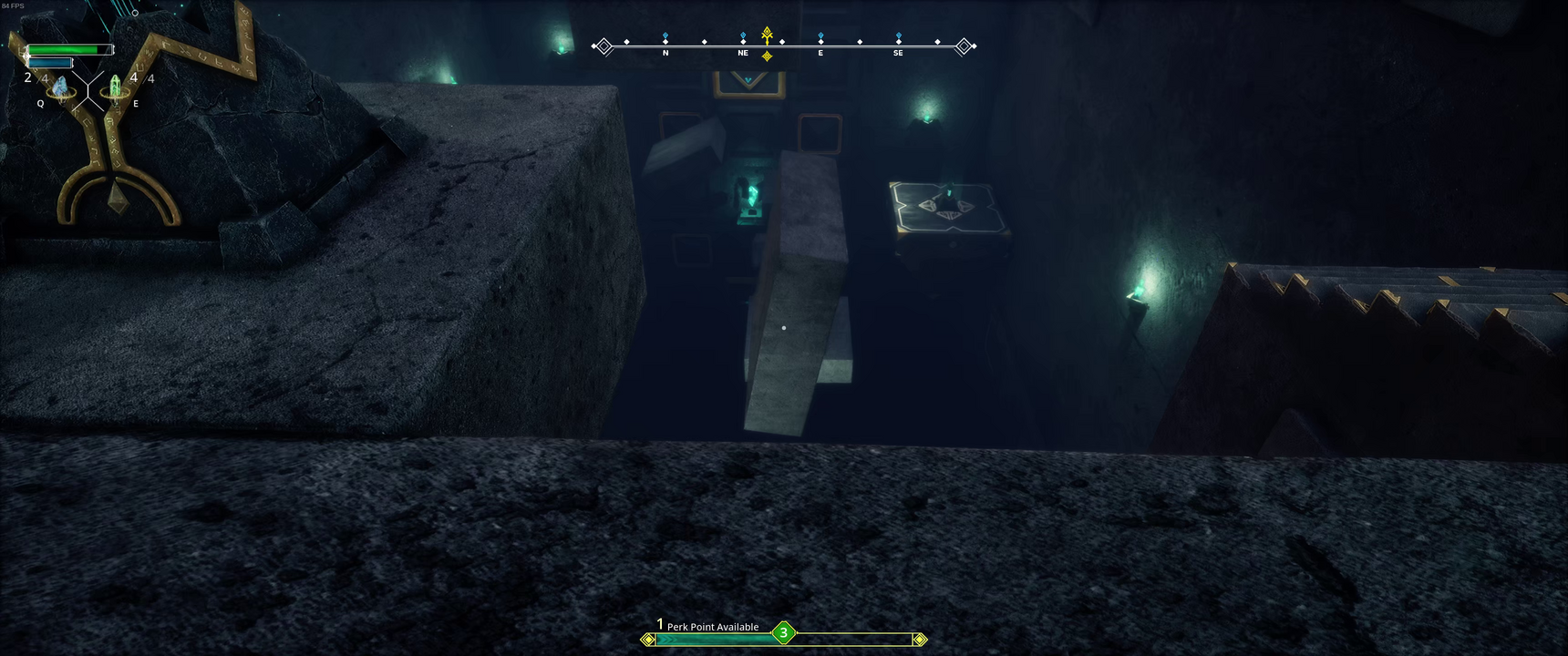
The game plays a lot around puzzles, you need to find your path from A to B through different terrains, moving platforms, room orientation and “lock picking” with lights and mirrors. Even some fights felt like a puzzle.
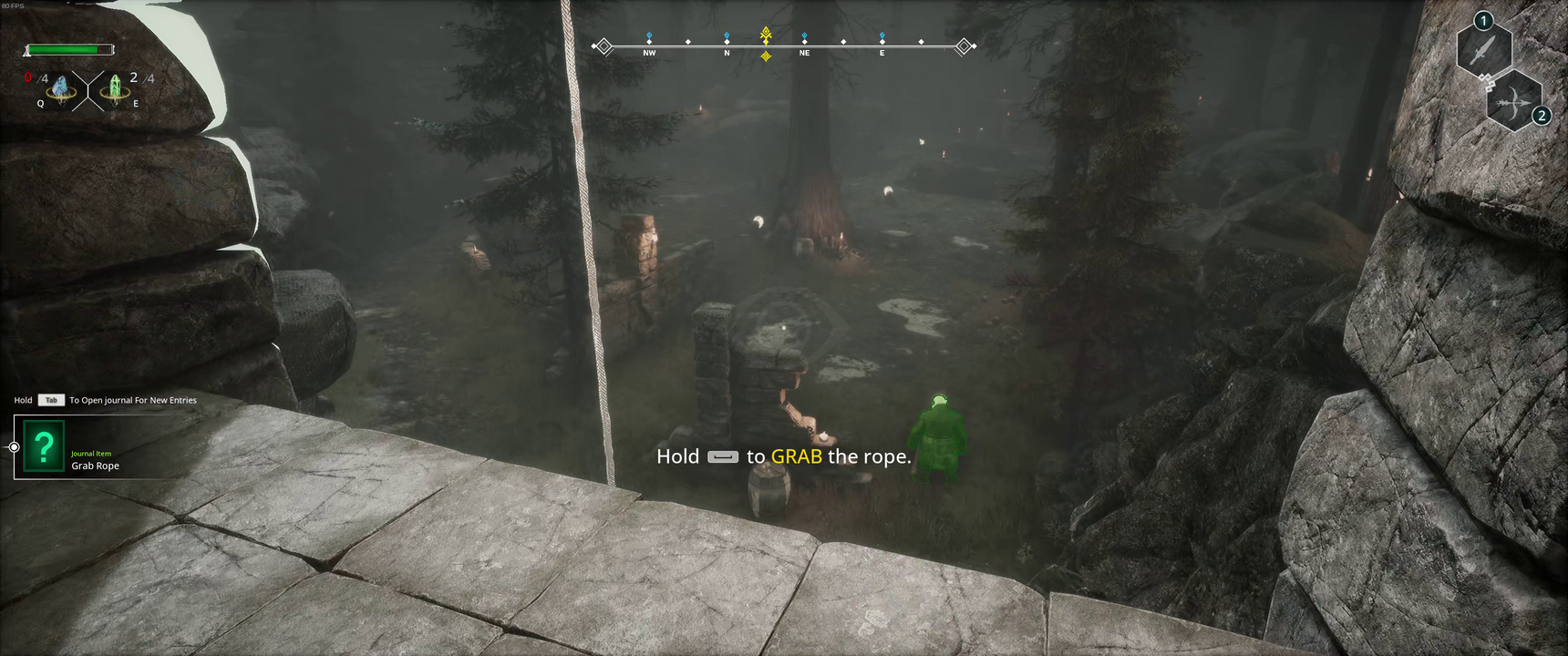
When you arrive at an area with enemies you will often have a general view of their locations, giving you some idea on how to approach the battle, or try to avoid it if needed. However, a few times the game tried to ambush me to fight several attackers in a small area, that is when you use everything in your arsenal, hack & slash style.
Your arsenal grows as you progress, first you find a sword, learn how to hit, then how to parry, and how to do a charged attack. You will unlock a bow and an insight skill that highlights enemies’ weak spot, at that part in the game it means if you hit there the enemy will die.
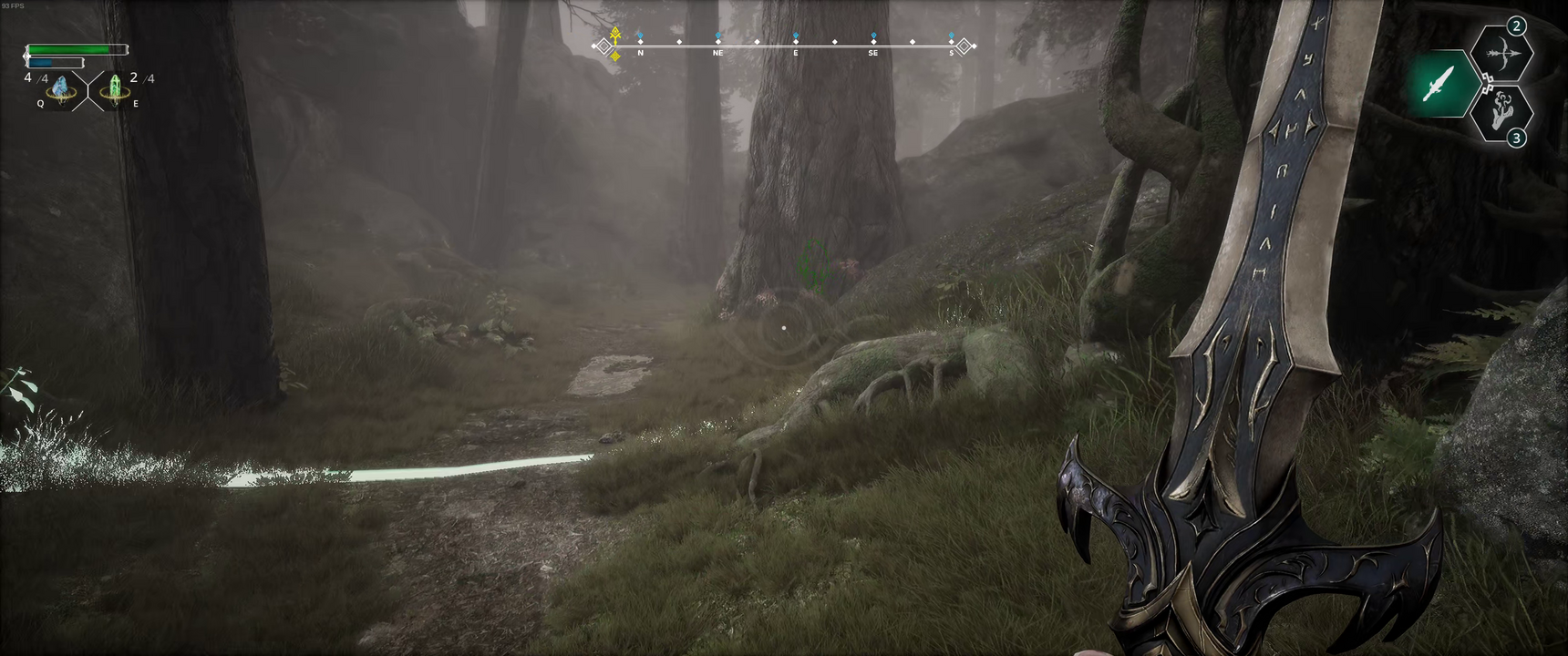
The insight skill is essential, as it also highlights chests, enemies and other important things even behind walls, it helps you sneak in to scout an area and facilitate a stealth kill of lonely wanderers.
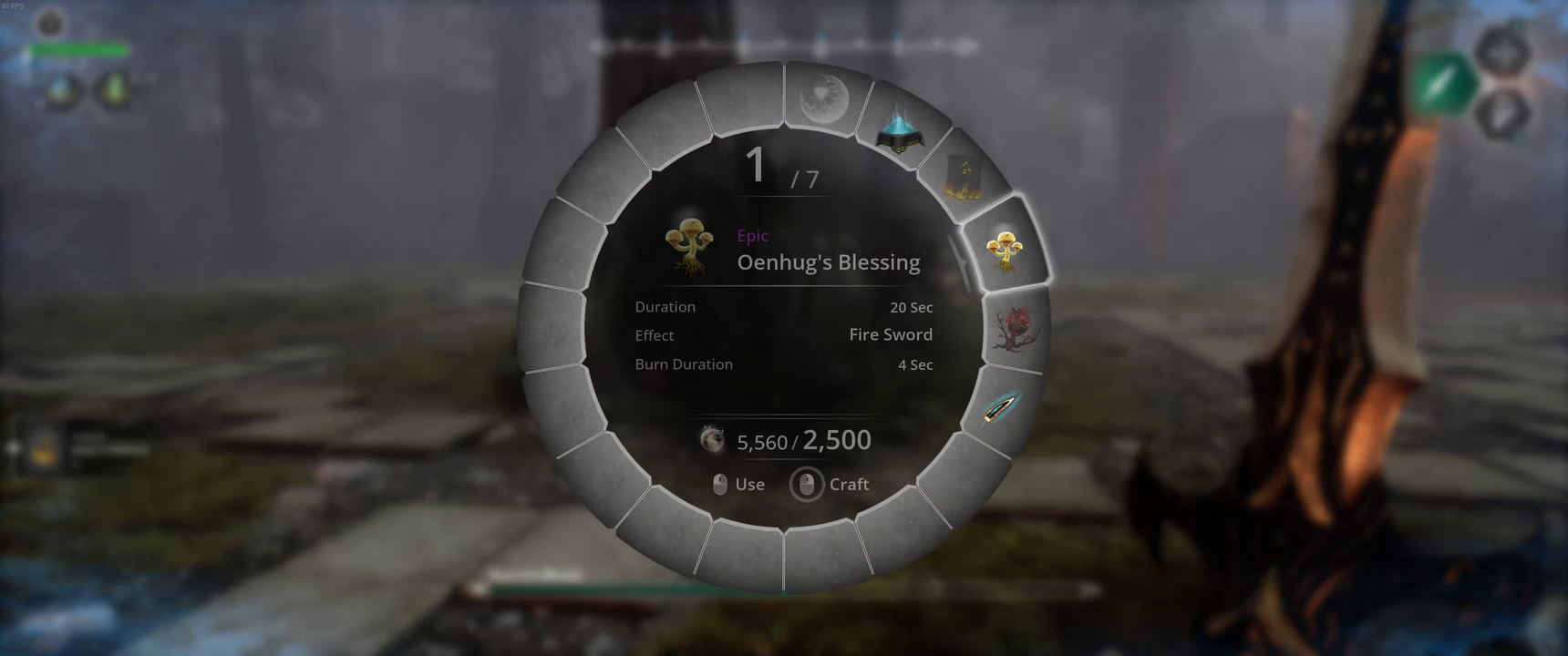
By breaking the objects around Zelda style, defeating enemies or opening chests you will find consumables, like health and spirit crystals, and buffs that you can use from the Wheel of Consumables, once you find an item you will be able to craft it again as long as you have the required amount of Shard of Creation, also found on the same places.
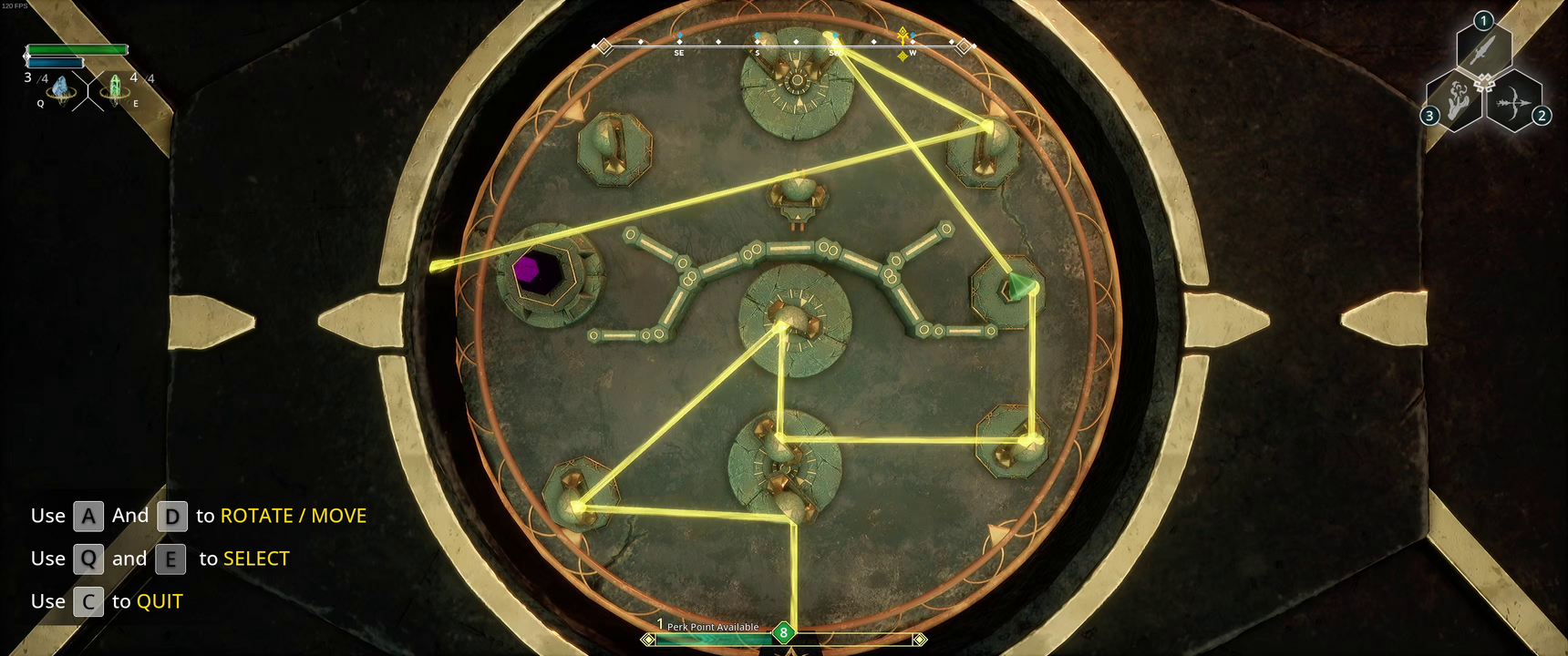
Acquiring Magic was one of my favourite parts of the game, the area is focused on platform puzzles, where you need to time your jumps over moving platforms, activate a mechanism to change the orientation of the room or align mirrors so the light beam can unlock a door.
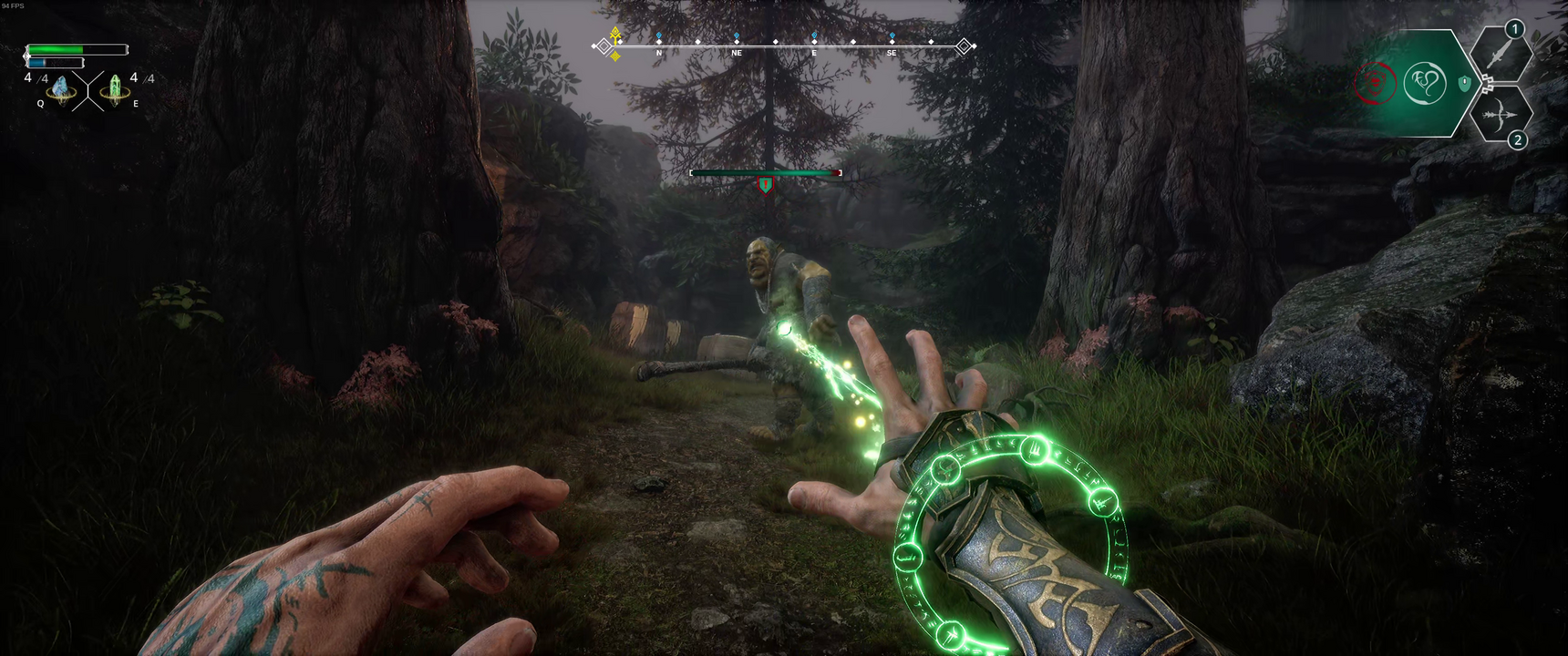
Magic felt a lot like a D&D campaign spell caster, underwhelming at first, but strong late in the game. The spells start weak and consume a lot of Spirit per cast. Spirit does not regenerate, and you have a limited number of crystals. Later, as you improve your spells and increase your crystal limit max amount, you can rely more on Magic.
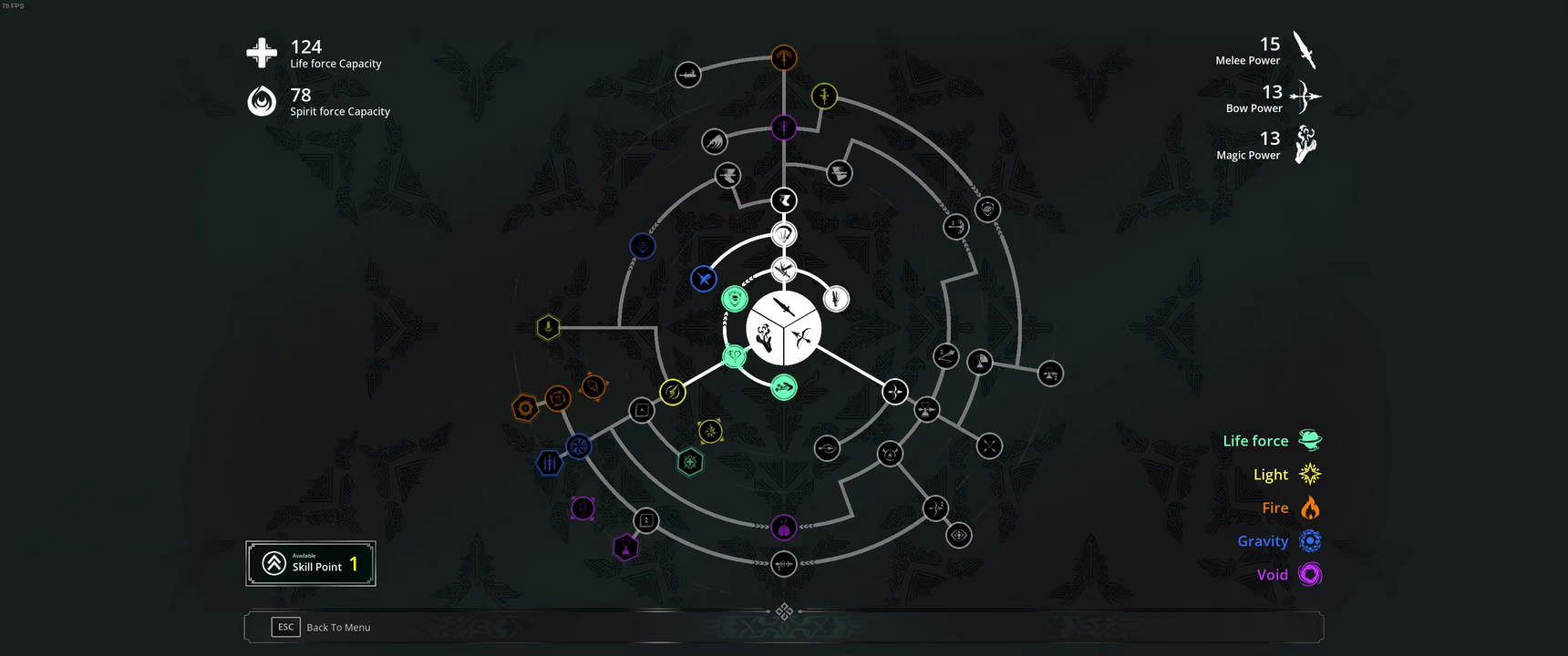
There are four ways to improve your character in this game: progressing in the game, the item buffs, increasing the number of crystals you can carry by collecting Life and Spirit Essences, and the Skill Tree.
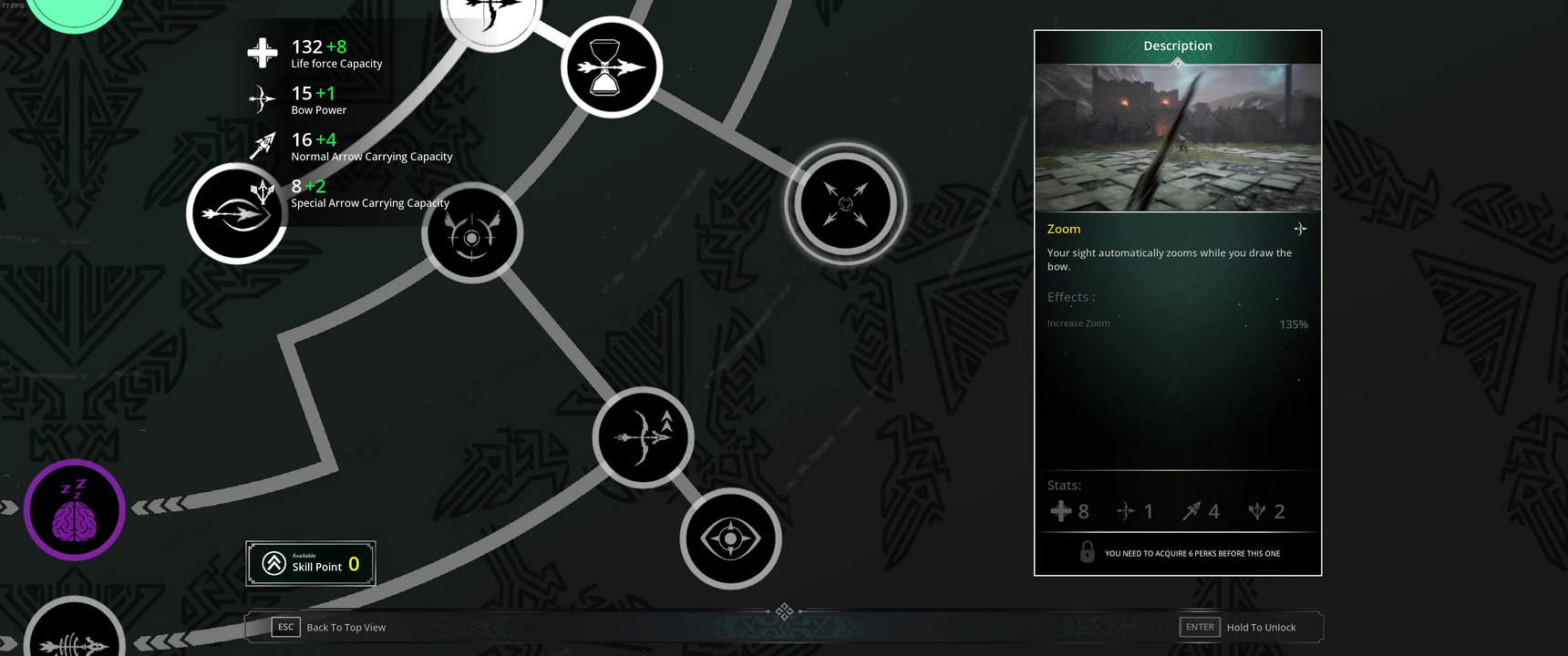
As you level up, you will get points to spend on the Skill Tree, unlocking new attacks or buffs to your character and also increasing the power of the associated “weapon” to that node, for example, if you get the skill to zoom in with your bow, it will also increase the bow power and the number of arrows you can carry.
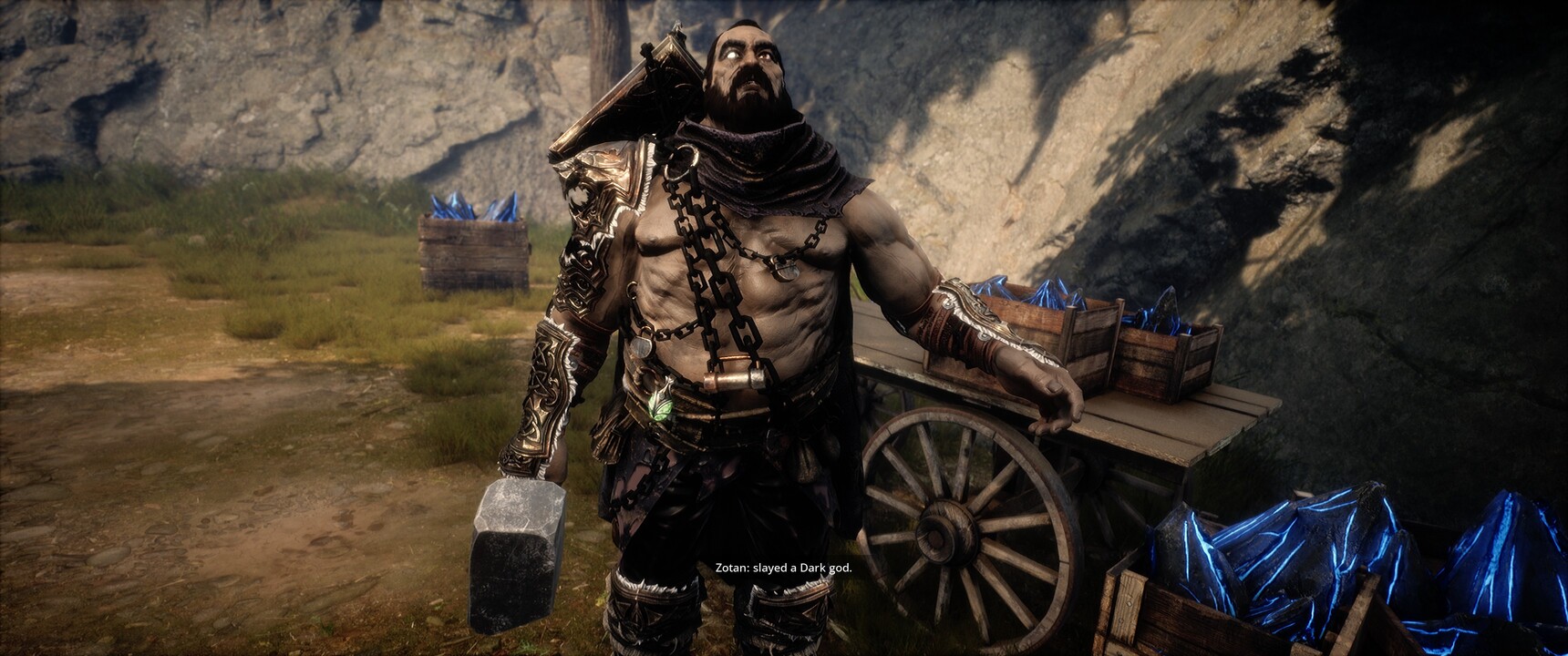
Besides a few enjoyable parts, there are many execution problems here and there that makes the game short of being good:
- The controller response is clunky, there is no pleasure in moving around or fighting.
- The enemies can clump together, not respecting the limit of their bodies, making positioning in fights a nightmare.
- When there is a conversation, it feels that each character’s voice-over was done with different studios and guidelines, as they are in entirely different vibe.
- The game tries to be metroidvania but it felt quite linear and too guided.
The list goes, but my general impression is that the game tried to check many boxes and ended up stretched too thin.
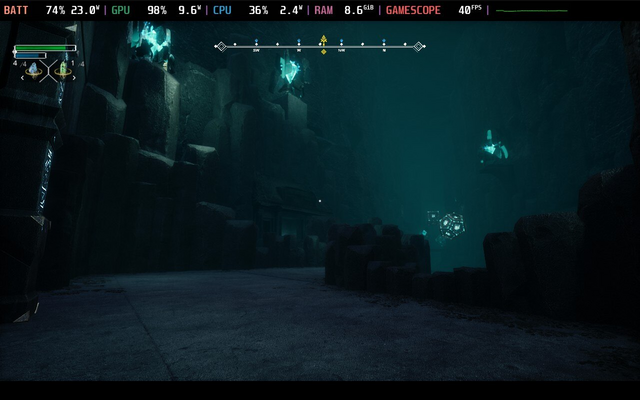
My experience with Steam Deck was less than ideal, it sync-ed my saves from PC but also my settings, every time I jumped from one to another I would have to re-spec the whole thing. With the lower resolution (1280x720) and quality (low) the game would draw 24W and a maximum of 40FPS in small empty areas.
While testing different resolutions to write the deck part, I ran into a bug that makes any save I load to stuck into a black screen, and restoring the settings to default did not help, I am not sure what really caused it but the only way to “fix” was starting a new game and losing all my progress.
Testament is available on Steam, but I suggest waiting and keeping an eye on the changelogs for improvements, and maybe some good discount, if you feel like giving it a try.
Thanks for reading! Cheers, Nils
